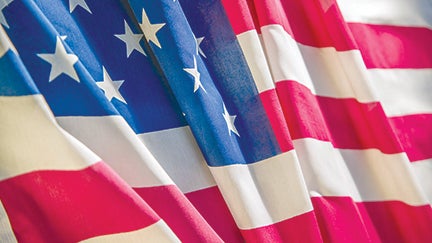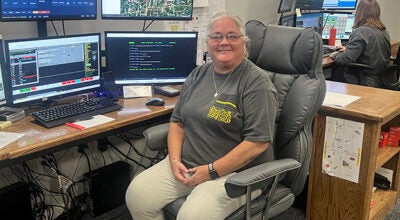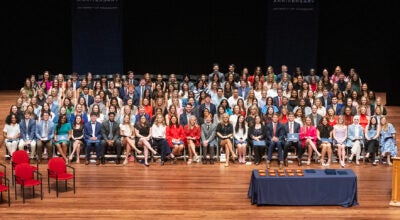The First Amendment guarantees you to right to gather, to petition
Published 10:14 pm Friday, January 26, 2018

- American flag banner
This is part of a series of stories about protections guaranteed by the First Amendment.
A group of Brookhaven educators sent their electronic signatures to Jackson this week, petitioning their legislators to step up and fight for them.
It’s a First Amendment right that Lipsey School Principal Rita Robinson said isn’t used enough.
“It’s a way to let your voice be heard,” Robinson said. “I think it’s a freedom that they take for granted and one that they don’t utilize.”
Robinson encouraged her fellow educators to sign an online petition for Mississippi Public Educators targeting lawmakers “to let them know you want them to stand up for public schools by saying ‘no’ to vouchers.”
The right to petition as well as the right to assemble are two of the lesser known freedoms included in the First Amendment.
The first amendment to the Constitution reads: “Congress shall make no law respecting an establishment of religion, or prohibiting the free exercise thereof; or abridging the freedom of speech, or the press; or the right of people peaceably to assemble, and to petition the Government for redress of grievances.”
The amendment specifically prohibits Congress from abridging the right of the people to petition the government for a redress of grievances or the right of the people peaceably to assemble. The right to peaceably assemble means that someone can gather together with others without fear from the government that they are a mob.
Robinson believes in “orderly, decent and peaceful” gatherings.
“If we don’t ever speak up and let our elected officials know the number of people feeling this way, they don’t know. They think it’s status quo,” she said.
Too many times, though, groups become unruly and turn into ugly mobs, she said.
That doesn’t get the message heard in a positive way.
“I don’t think we need to get out and act a fool,” said Randall Smith, a veteran who is also chairman of the Lincoln County Military Memorial Museum. “I don’t see anything wrong with protest, but you have to do it the right way.”
He’s in favor of peaceful assembly, even if he doesn’t necessarily agree with the opinion of the protestors.
“If you try to get out and trample on someone else’s rights, that’s wrong,” he said.
In some cases, government can require a permit as a condition of protest on public property. For example, government often can require a permit for parades in the streets, given the impact on vehicle traffic. Likewise, government often can require a permit for large protests in public parks and plazas, in order to ensure fairness among the various groups seeking to use the site, according to “Your Rights as a Protestor” published by the American Civil Liberties Union of Mississippi.
On the other hand, the First Amendment generally bars government from requiring a permit when one person or a small group protest in a park, or when a group of any size protest on a public sidewalk in a manner that does not burden pedestrian or vehicle traffic. Such non-permitted protests might involve speeches, press conferences, signs, marches, chants, leaflets, expressive clothing, and efforts to speak with passersby. The absence of a permit for such protests simply does not burden any legitimate government interests.
According to the ACLU, people have the right to distribute literature, chant and engage passerby in debate, but you do not have the right to block sidewalks or building entrances or physically harass people.
One example is a group of church-goers who assemble several times a year on the outskirts of the parking lot of the UA Westbrook 4 movie theater.
The protestors — usually no more than a dozen — carry signs quoting Biblical scripture and gather between the theatre’s property and Brookway Boulevard.
The men and women of various ages sometimes encourage patrons to avoid seeing certain movies that the group deems unsupportive of Biblical teachings.
Generally a permit is not required for a small group to protest in a traditional public forum, the ACLU report said.
There are some limits on the freedoms to assemble.
The government can limit speech by imposing nondiscriminatory narrowly drawn “time, place, and manner” restrictions. This is most commonly done by requiring permits for meetings, rallies and demonstrations.
Also, the First Amendment does not protect speech that incites violence, is obscene, or is threatening.
The constitution also protects actions that symbolically express a viewpoint. Examples of these symbolic forms of speech include wearing masks and costumes or holding a candlelight vigil. However, symbolic acts and civil disobedience that involve illegal conduct may be outside the realm of constitutional protections and can sometimes lead to arrest and conviction, according to the ACLU. Therefore, while sitting in a road may be expressing a political opinion, the act of blocking traffic may lead to criminal punishment.
Protesters engaged in protected First Amendment activities who believe their rights have been violated are encouraged to report these concerns to the ACLU of Mississippi at 601-354-3408.





